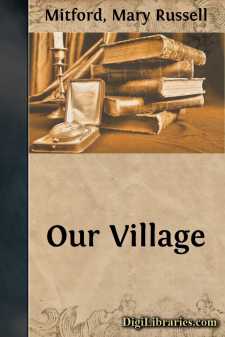Categories
- Antiques & Collectibles 13
- Architecture 36
- Art 48
- Bibles 22
- Biography & Autobiography 816
- Body, Mind & Spirit 145
- Business & Economics 28
- Children's Books 17
- Children's Fiction 14
- Computers 4
- Cooking 94
- Crafts & Hobbies 4
- Drama 346
- Education 58
- Family & Relationships 59
- Fiction 11834
- Foreign Language Study 3
- Games 19
- Gardening 17
- Health & Fitness 34
- History 1378
- House & Home 1
- Humor 147
- Juvenile Fiction 1873
- Juvenile Nonfiction 202
- Language Arts & Disciplines 89
- Law 16
- Literary Collections 686
- Literary Criticism 179
- Mathematics 13
- Medical 41
- Music 40
- Nature 179
- Non-Classifiable 1768
- Performing Arts 7
- Periodicals 1453
- Philosophy 66
- Photography 2
- Poetry 897
- Political Science 203
- Psychology 45
- Reference 154
- Religion 516
- Science 126
- Self-Help 85
- Social Science 82
- Sports & Recreation 34
- Study Aids 3
- Technology & Engineering 59
- Transportation 23
- Travel 463
- True Crime 29
Our website is made possible by displaying online advertisements to our visitors.
Please consider supporting us by disabling your ad blocker.
Honor O'Callaghan
Categories:
Description:
Excerpt
Times are altered since Gray spoke of the young Etonians as a set of dirty boys playing at cricket. There are no such things as boys to be met with now, either at Eton or elsewhere; they are all men from ten years old upwards. Dirt also hath vanished bodily, to be replaced by finery. An aristocratic spirit, an aristocracy not of rank but of money, possesses the place, and an enlightened young gentleman of my acquaintance, who when somewhere about the ripe age of eleven, conjured his mother "not to come to see him until she had got her new carriage, lest he should be quizzed by the rest of the men," was perhaps no unfair representative of the mass of his schoolfellows. There are of course exceptions to the rule. The sons of the old nobility, too much accustomed to splendour in its grander forms, and too sure of their own station to care about such matters, and the few finer spirits, whose ambition even in boyhood soars to far higher and holier aims, are, generally speaking, alike exempt from these vulgar cravings after petty distinctions. And for the rest of the small people, why "winter and rough weather," and that most excellent schoolmaster, the world, will not fail, sooner or later, to bring them to wiser thoughts.
In the meanwhile, as according to our homely proverb, "for every gander there's a goose," so there are not wanting in London and its environs "establishments," (the good old name of boarding-school being altogether done away with,) where young ladies are trained up in a love of fashion and finery, and a reverence for the outward symbols of wealth, which cannot fail to render them worthy compeers of the young gentlemen their contemporaries. I have known a little girl, (fit mate for the above-mentioned amateur of new carriages,) who complained that her mamma called upon her, attended only by one footman; and it is certain, that the position of a new-comer in one of these houses of education will not fail to be materially influenced by such considerations as the situation of her father's town residence, or the name of her mother's milliner. At so early a period does the exclusiveness which more or less pervades the whole current of English society make its appearance amongst our female youth.
Even in the comparatively rational and old-fashioned seminary in which I was brought up, we were not quite free from these vanities. We too had our high castes and our low castes, and (alas! for her and for ourselves!) we counted among our number one who in her loneliness and desolation might almost be called a Pariah—or if that be too strong an illustration, who was at least, in more senses than one, the Cinderella of the school.
Honor O'Callaghan was, as her name imports, an Irish girl. She had been placed under the care of Mrs. Sherwood before she was five years old, her father being designated, in an introductory letter which he brought in his hand, as a barrister from Dublin, of ancient family, of considerable ability, and the very highest honour. The friend, however, who had given him this excellent character, had, unfortunately, died a very short time after poor Honor's arrival; and of Mr. O'Callaghan nothing had ever been heard after the first half-year, when he sent the amount of the bill in a draft, which, when due, proved to be dishonoured. The worst part of this communication, however unsatisfactory in its nature, was, that it was final. All inquiries, whether in Dublin or elsewhere, proved unavailing; Mr. O'Callaghan had disappeared; and our unlucky gouvernante found herself saddled with the board, clothing, and education, the present care, and future destiny, of a little girl, for whom she felt about as much affection as was felt by the overseers of Aberleigh towards their involuntary protege, Jesse Cliffe. Nay, in saying this, I am probably giving our worthy governess credit for somewhat milder feelings upon this subject than she actually entertained; the overseers in question, accustomed to such circumstances, harbouring no stronger sentiment than a cold, passive indifference towards the parish boy, whilst she, good sort of woman as in general she was, did certainly upon this occasion cherish something very like an active aversion to the little intruder....












